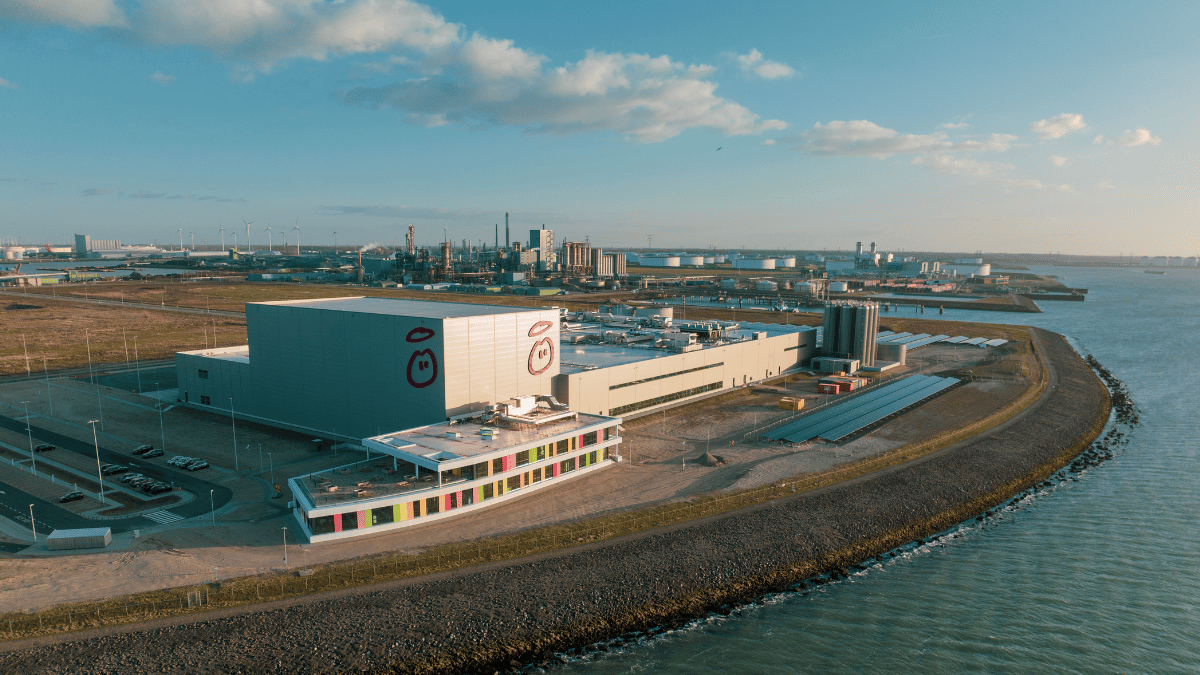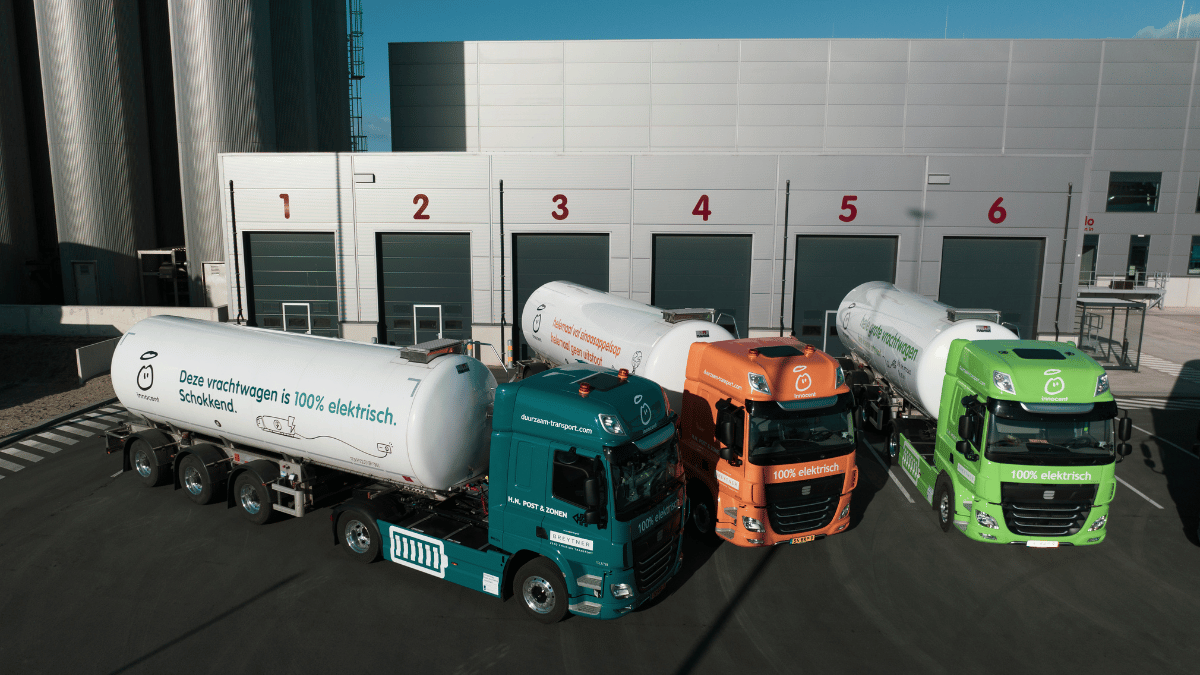Innocent build an all-electric drinks factory called The Blender. It smells of strawberries (but still makes millions of plastic bottles)
The ostentatiously-ethical smoothie drinks manufacturer Innocent may have seemed less than innocent in recent years.
They were bought out by Coca Cola in 2013, one of the words biggest plastic polluters. They also fell foul of a "greenwashing” charge in 2021, when a TV advert about “fixing up the planet” fell foul of the UK’s Advertising Standards Authority (ASA), who ruled it as “misleading to consumers”.
But they have been lauded recently for a green landmark - building one of the world’s first carbon-neutral, all-electric drinks factories, in Rotterdam’s seaport, named The Blender. Straightaway, the fact that their fruit comes directly to this port cuts out 20% of transportation truck kilometres. But on top of that, reports Raconteur:
Their factory is designed to run entirely on renewable power. Thousands of solar panels supply about 7% of the site’s electricity, with the rest coming from a renewable tariff on the grid. On-site wind turbines, which currently going through the planning process, will eventually take over.
Inside, everything is electric, from the machines that fill and seal bottles to fully-automated robots that pick and pour drums of fruits and purees.
Instead of traditional gas-fired heating and cooling systems, the Blender employs a heat pump which works much like a domestic version. Waste heat generated by refrigeration is captured and used to pasteurise drinks.
The network of pipes connecting the blending, mixing and bottling equipment is kept spotless with an ‘air tornado’ system that shoots compressed air to remove grime. This reduces water use by 50% compared to conventional systems.
One of the biggest innovations is a “world-first” fleet of 50-tonne all-electric trucks. Something like a cartoon version of an oil tanker in appearance, they ferry orange juice to the Blender from a storage depot 40 minutes across the port, where it arrives on a ship from Brazil. Orange juice is Innocent’s main ingredient, and the bottled version is its first product to be certified as carbon neutral.
The Blender was certified by BREAM NL, a sustainable building standard, as ‘outstanding’, the highest possible grade. But they still face challenges on the road to carbon-neutral:
Activist group Plastics Rebellion has claimed that Innocent pumps out 32,000 bottles an hour.
It’s been a goal for years, O’Gorman says. At present, 50% of the plastic used in their bottles is recycled, while some bottles contain an extra 15% of plant-based material. Innocent is campaigning for government deposit return schemes for bottles across Europe and has removed 2,500 tonnes of plastic from its annual packaging total by making their bottles thinner and lighter.
Then there’s the question of how much the new factory will reduce the company’s overall emissions. Just 5% of its emissions are down to bottling and processing, with the vast majority stemming from ingredient and packaging production and transport (although Innocent has several green programmes underway in those areas, too).
It means a portion of Innocent’s journey to carbon neutrality rests on buying carbon offsets, a contentious method. A Guardian investigation recently found 90% of rainforest offsets offered by one supplier, Verra, did not remove any carbon.
O’Gorman says the team worked hard to find a good offsetting partner (they opted for South Pole, which is separate to Verra but uses that organisation’s certification standards). There are active discussions going on about whether these schemes are the way forward for Innocent, she adds.
It’s interesting to see their embrace of government deposit return schemes - one way to reconcile the impulse purchase required for their business model, with a reduction in generation of waste products. There’s a push-back on these islands, as the SNP-Green government in Edinburgh are trying to apply a similar scheme, with the UK government threatening to veto its implementation.


